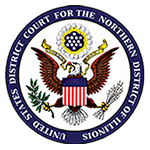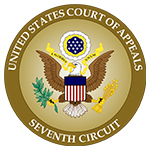Businesses rise and fall based on who is at the helm. Suppose the owner suddenly dies or becomes unable to fulfill his or her responsibilities. In that case, the establishment usually suffers because there was no plan to find an equally competent replacement or for ownership to pass from one set of hands to another.
A well-crafted and thoughtful succession plan may be the key to a business’s survival during a transition. An effective succession plan must include:
- Consideration of the Company’s unique identity
- Enhances established business model
- Mitigate potential losses
- Help a business thrive when the unexpected takes place.
Closely Held Small Businesses
Small businesses are unique establishments. According to JPMorgan Chase Institute, small businesses are the lifeblood of the US economy. Over the past two decades, the US economy has created more non-employer businesses than employee small businesses.
Small businesses employ nearly half of all US employees (48 percent) and contribute over 43 percent to net job creation. However, of the total  29.6 million small businesses, 24 million—are non-employer businesses (they have only a single owner with no employees. In addition, most employer businesses have relatively few employees—a full 88 percent of all employer businesses have fewer than 20 employees.
29.6 million small businesses, 24 million—are non-employer businesses (they have only a single owner with no employees. In addition, most employer businesses have relatively few employees—a full 88 percent of all employer businesses have fewer than 20 employees.
If a small business is a single employee business, a succession plan is crucial to ensure the Company will survive for the rest of the family
Closely held small businesses often don’t outlive their original owners and survive an unexpected transition. Small business owners fail to engage in succession planning for several reasons:
- Refusal to acknowledge the possibility that they will not always be around or able to drive their businesses;
- Business owners feel they have far more burning issues to take care of than prospective planning;
- They believe that either key employees will always be there to handle future control of the business or that their children who are currently active in the Company will still want them to be in charge;
- Failure to recognize the severe implications of unplanned business successions to their overall estate plans, including estate tax issues;
Therefore, a well-rounded and thoughtfully considered succession plan often involves:
- The business owner’s estate plan,
- The business’s forward-looking strategic plan
- The family’s financial plan if it is family-owned
Estate Planning and Business Succession Planning
A business succession plan often begins with the most challenging questions that the owner should consider regarding their future. These questions include:
- What is the owner’s current role?
- What does the owner see in their role in the future?
- How much income does the owner desire from the business in the future, and for how long?
- Does the owner have enough retirement income outside of the business?
- How long does the owner want to maintain control or stay actively involved in the business?
If the business is family-owned, considerations are familial:
- How is business information shared between family members?
- How is each family member compensated?
- How will ownership or management be inherited among family members, and to whom ownership or control will transfer?
Succession planning provides a framework for continual consideration of future ownership and distribution of earnings to owners. It also allows owners to consider if a change in business structure is advantageous for tax purposes, governance issues, and the transfer’s execution procedures. Finally, the owner can consider if the sale to outside entities makes more sense for the estate’s future.
If you have a business and want to create a business succession plan, the Law Office of Richard J. Arendt can help. We provide expert counsel in the greater Chicagoland area, including Boone, Cook, Du Page, Kane, McHenry, Lake, and Will counties.
You may call us to schedule an initial consultation at (312) 642-9606 or visit us at https://www.rjarendtlaw.com/contact/











